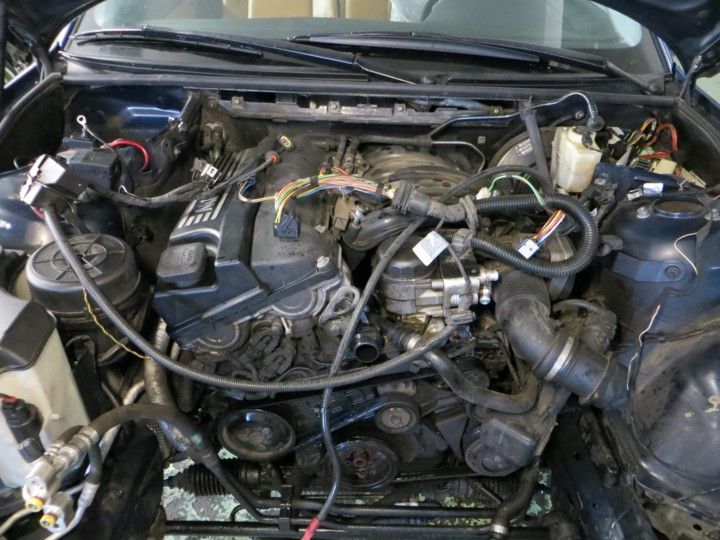BMW 318ti: A Comprehensive Guide to This Compact Powerhouse
BMW 318ti: A Comprehensive Guide to This Compact Powerhouse
Blog Article
Vital Considerations for Selecting the most effective Engine for Your Requirements
In the realm of selecting the ideal engine to satisfy your needs, numerous critical variables demand thorough consideration to ensure optimal performance and effectiveness. From the nuanced balance in between power and performance to the often-overlooked facets of upkeep and service needs, each element plays an essential function in establishing the most ideal engine for your certain demands.
Power and Efficiency
When assessing engines for ideal performance, it is critical to focus on both power result and efficiency. Efficiency refers to how well the engine converts gas right into functional energy. By thoroughly examining both power and effectiveness, you can pick an engine that delivers optimal performance and satisfies your needs efficiently.
Gas Efficiency and Economic Climate
Gas performance refers to the engine's capacity to transform gas into energy with marginal waste, straight impacting operating expenses and environmental sustainability. Engines with higher fuel performance not only decrease gas expenses however also lower carbon discharges, adding to a greener procedure.

Compatibility and Application
Taking into consideration the gas efficiency and economic climate of an engine, the following critical facet to address is its compatibility and application within specific functional contexts. Compatibility describes how well the engine integrates with the overall system or tools it powers. It includes factors such as physical measurements, mounting alternatives, electrical user interfaces, and control systems. Guaranteeing compatibility is important to protect against concerns such as overheating, vibrations, or power inequalities (bmw 318ti).
Additionally, the application of the engine is just as vital. Various engines are developed for certain objectives, whether it be industrial machinery, aquatic vessels, autos, or power generators. Understanding the designated application enables the choice of an engine that can provide the needed power result, torque, and operational qualities. A high-revving engine designed for performance automobiles would not be appropriate for sturdy construction equipment that needs high torque at reduced rates.
Maintenance and Service Needs
Maintenance and service requirements play a vital function in ensuring the durability and optimum performance of an engine. Routine upkeep is important to stop breakdowns, extend the life expectancy of the engine, and keep its efficiency. When choosing an More hints engine, it is essential to think about the supplier's recommended maintenance routine and the schedule of solution facilities or certified technicians.
Variables such as the frequency of oil changes, filter replacements, and general examinations can significantly impact the engine's performance. Some engines may require more constant maintenance based upon their design and usage, while others may have longer intervals between upkeep checks. It is essential to stick to these solution needs to stay clear of costly repairs and unexpected downtime.

Expense and Budget Plan Considerations
Spending plan restrictions typically play a considerable role in the decision-making procedure when picking an engine for a specific application. When considering the cost and spending plan implications of selecting an engine, it is important to examine not just the initial purchase cost but also the lasting expenses associated with upkeep, gas usage, and possible upgrades or repair services. It is essential to strike a balance between the ahead of time price of the engine and its overall lifecycle expenses to guarantee that the picked engine continues to be economically lasting throughout its operational life-span.
Factors such as fuel durability, reliability, and efficiency can directly impact the overall price of possession of an engine. While a more expensive engine may have click here to read higher in click here now advance prices, it could potentially lead to lower maintenance and fuel costs gradually, therefore supplying much better worth over time. Furthermore, thinking about the availability and expense of extra parts, along with the convenience of upkeep and solution, can help prevent unexpected financial pressure in the future. By thoroughly assessing these cost and budget plan considerations, you can make an informed decision that straightens with your financial restrictions and operational needs.
Conclusion
Gas effectiveness refers to the engine's capability to transform fuel into power with minimal waste, straight impacting operating costs and environmental sustainability.Variables influencing fuel performance consist of engine design, combustion performance, and total efficiency optimization. Furthermore, choosing the suitable gas kind and grade as advised by the engine producer can better boost effectiveness and prolong engine life-span.
Engines with excellent utility attributes and conveniently offered components can reduce maintenance expenses and minimize the time the engine is out of operation - bmw 318ti. It is essential to strike an equilibrium in between the ahead of time expense of the engine and its total lifecycle prices to ensure that the chosen engine stays monetarily sustainable throughout its operational lifespan
Report this page